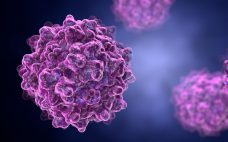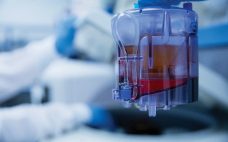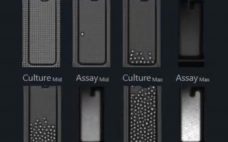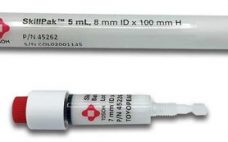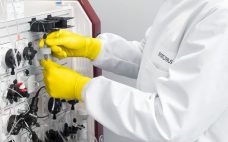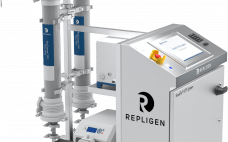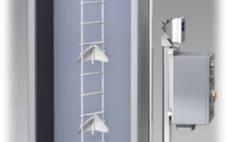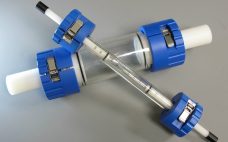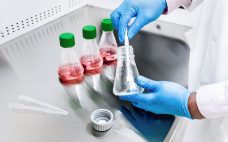This webcast features: Jason Sterling, Principal Scientist and Project Director, Analytical and Formulation Resources, and John Rockwell, Group Leader, Catalent Pharma Solutions Biophysical characterization is critical to understand the make-up and behaviors of biologic therapies and vaccines both early in development and throughout the manufacturing scale-up process. As biologics become more complex in structure, and as scientists improve their understanding of the effects of structure on stability, efficacy, safety, etc., there is a need to develop new and improved analytical…
Ask the Experts
Analytical Ultracentrifugation for Characterization of AAV Gene Delivery Vectors
This webcast features: Christopher Sucato, PhD, Associate Director, Biophysical Characterization, and Cynthia Swanson, Associate Research Scientist, Charles River Laboratories Analytical ultracentrifugation (AUC) has been a staple in the biopharmaceutical industry to analyze aggregation and higher-order structure in protein drug products. With the recent boom in cell and gene therapies using gene-delivery vectors, new avenues for AUC-based characterization and QC lot release methodologies are now available. View this webinar for a discussion on the new parameters of AUC analysis and how…
Opto-Sensor Guided Centrifugation for Efficient, Reagent-Free Cell Separation in a Semi-Automated Closed System
This webcast features: Ben Josey, PhD, Field Applications Scientist, Corning Life Sciences The potential for cell-based immunotherapies is moving fast. But some of the processes to develop and manufacture these clinical-grade therapies can slow you down. This Ask the Expert webinar will cover ways you can reduce the manual steps involved in traditional cell processing. Attend to learn more about: Tips to streamline cell separation and formulation of specific cell populations for cell and gene therapy development and manufacturing Ways…
De-Risking INDs with Unrivaled Monoclonality Assurance in Cell Line Development
This webcast features: Tanner Nevill, Vice President, Program Management, Berkeley Lights Monoclonality assurance is a central regulatory requirement for all cell lines manufacturing biologic therapies. Imaging is currently the gold standard for confirming that production cell lines originate from a single cell. However, conventional well plate imaging is very labor-intensive and prone to error due to the presence of “ghost” cells and debris that are difficult to differentiate from cells. Opto™ cell line development (CLD) on the Berkeley Lights Beacon® system provides…
How to Halve the Costs of Antibody Purification?
This webcast features:Â Romain Dabre, Senior Product Manager, Tosoh Bioscience Downstream processing is responsible for up to 80% of the entire production costs of biotherapeutics. Given the current drive to reduce manufacturing costs for biological therapeutics, streamlining downstream processing is necessary for chromatographers and process engineers. In this presentation, we showcase the benefits of using only two chromatography processes to purify monoclonal antibodies compared to the standard industrial process. Combining high-performance Protein A capturing and a single polishing step on salt-tolerant…
Best Practices for Ensuring High Virus Clearance When Using Anion Exchange Membrane Adsorbers
This webcast features: Sherri Dolan, Global Technology Consultant, Separations Marketing Group, Sartorius Stedim Biotech The risk of viral contamination is a concern for all biopharmaceuticals and vaccines derived from cell lines and can have serious implications. Contamination events can cost millions of dollars in investigation, clean-up, corrective action, and manufacturing plant downtime. Most importantly, such events pose a safety risk to the patient. To ensure the safety of biological products, regulatory agencies require manufacturing processes to have a validated current…
Configurable, Single-Use TFF Systems for Rapid Bioprocessing
This webcast features: David Serway, Global Director, Single-Use TFF Systems and ProConnex® Flow Paths, Repligen The explosive growth in biologics and gene therapies, the globalization of biomanufacturing, and the pressures to reduce capital investment and cost of goods while accelerating speed to market all point to changes in how bioprocessing systems/skids are designed, built, and operated. Future hardware, software, and consumables built on the principle of flexibility and extensive use of single-use, closed, complete, and ready-to-operate technologies will be described.…
Bioprocess Selection and Economics: 5,000-L DynaDrive™ Bioreactor Shifting the Paradigm
This webcast features: Jeff Johnson, Founder and President, BioTech Design, LLC, Mark Thomas Smith, R&D Engineer, Thermo Fisher Scientific, and Kevin Mullen, Senior Product Manager, Thermo Fisher Scientific Single-use technologies enable a flexibility and modularity effectively unattainable with more traditional stainless-steel technologies, particularly in upstream bioprocesses. Single-use bioreactors up to 2,000 L are employed largely in preclinical- and clinical-stage bioprocesses to leverage this flexibility. As products reach commercial maturity, scales larger than 2,000 L frequently become desirable to take advantage…
FPLC Column Selection Considerations
This webcast features: Dan Yukon, Head of North American Sales and Global Sales of SNAP Products, Astrea Bioseparations This presentation will outline various selection criteria when considering glass fast protein liquid chromatography (FPLC) columns for low-pressure chromatography. The topics will include: pressure and volume considerations column configuration (aspect ratio) materials of construction frit type, design porosity, and mounting connection types adjustability construction accuracy packing tube design storage. There are many types and brands of columns available on the market, and…
Revealing Cell Secrets with Optical Sensors in Upstream Bioprocessing
This webcast features: Jake Boy, Senior Application Scientist, Scientific Bioprocessing Single-use optical sensors play a critical role in upstream bioprocessing. Scientific Bioprocessing has developed sensors with a form factor suitable for the smallest culture vessels so that data can be obtained from the very early stages of research through scale-up in larger reactors. Our intelligent, dynamic, and real-time monitoring of pH and dissolved oxygen challenges traditional culture protocol assumptions and offers insights into the conditions that cells are actually experiencing.…


